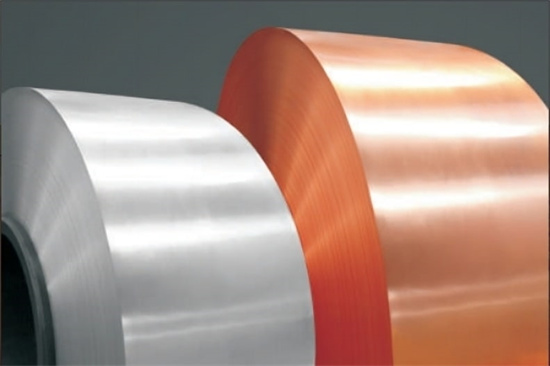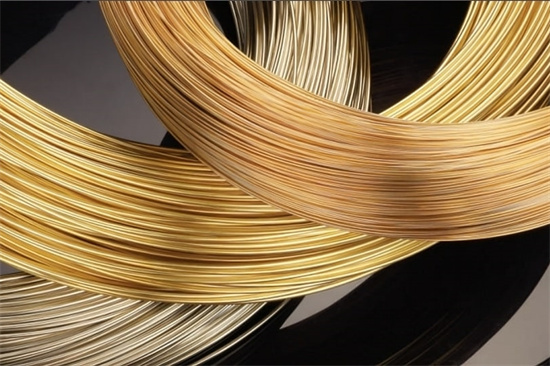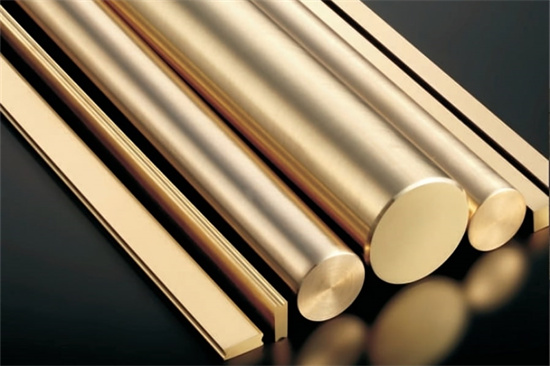


Friformsskärning av brons: En omfattande guide
Låg MOQ
Tillhandahålla låg minsta orderkvantitet för att möta olika behov.
OEM & ODM
Tillhandahålla kundanpassade produkter och designtjänster för att tillgodose unika kundbehov.
Tillräckligt lager
Säkerställa snabb orderhantering och tillhandahålla tillförlitlig och effektiv service.
Kundtillfredsställelse
Tillhandahålla högkvalitativa produkter med kundnöjdhet i fokus.
dela denna artikel
Innehållsförteckning
I metallurgins värld, friskärande brons har en speciell plats. Denna bronslegering är känd för sin exceptionella bearbetbarhet och är designad för att lätt skäras, borras eller formas, allt samtidigt som den behåller sin styrka och Hållbarhet. Om du arbetar i industrier som bil-, marin- eller elektriska komponenter, är chansen stor att du har stött på detta otroligt användbara material. Men vad är det egentligen som gör friskärande brons så speciellt? Och varför är det ett bra val för tillverkare över hela världen?
I den här guiden kommer vi att dyka djupt in i egenskaperna, sammansättningen, tillämpningarna och fördelarna med friskärande brons. Oavsett om du är en erfaren ingenjör eller någon som precis har börjat utforska metallegeringar, hjälper den här artikeln dig att förstå allt du behöver veta om friskärande brons.
Översikt över Free Cutting Bronze
Låt oss börja med en enkel fråga: Vad är friskärande brons? I ett nötskal, friskärande brons är en kopparbaserad legering som är speciellt utformad för enkel bearbetning. Den innehåller små mängder bly, vilket förbättrar dess bearbetbarhet, vilket gör det lättare att skära, vända och forma jämfört med andra typer av brons.
Men varför skulle du vilja ha ett material som är lätt att bearbeta? Tja, i högvolymtillverkning är tid pengar. Ju snabbare och mer effektivt du kan bearbeta en del, desto lägre blir dina produktionskostnader. Det är där friskärande brons kommer in – det är ett idealiskt material för delar som måste produceras snabbt utan att offra precision eller kvalitet.
Nyckelfunktioner i Free Cutting Bronze
- Utmärkt maskinbearbetbarhet: Designad för att enkelt skäras, borras och formas.
- Hög hållfasthet: Trots att den är lätt att bearbeta behåller den goda mekaniska egenskaper.
- Korrosionsbeständighet: Lämplig för miljöer där exponering för fukt eller kemikalier är vanligt.
- Elektrisk ledningsförmåga: Även om den inte är lika ledande som ren koppar, erbjuder den fortfarande goda elektriska egenskaper.
- Estetiskt tilltalande: Brons karakteristiska gyllenbruna färg gör den visuellt tilltalande för dekorativa applikationer.
| Fastighet | Detaljer |
|---|---|
| Baskomposition | Koppar med små mängder bly för förbättrad bearbetbarhet |
| Primära legeringselement | Bly (Pb), tenn (Sn), Zink (Zn) |
| Motståndskraft mot korrosion | Hög, speciellt i marina och industriella miljöer |
| Bearbetningsvärde | Utmärkt, ofta betygsatt runt 85-90% på bearbetningsskalan |
| Elektrisk konduktivitet | Måttlig (lägre än ren koppar men tillräckligt för många elektriska applikationer) |
| Färg | Guldbrun |
Sammansättning och egenskaper hos friskärande brons
Nu när vi har täckt grunderna, låt oss dyka in i sammansättning av friskärande brons. Vilka element gör denna legering så unik? Den primära komponenten är koppar, men den innehåller också små mängder bly, tenn och zink. Blyhalten är det som ger legeringen dess "friskärande" egenskaper, vilket gör att den kan bearbetas snabbt och enkelt utan överdrivet slitage på verktyg.
Typisk sammansättning av friskärande brons
| Element | Procentuell andel (%) |
|---|---|
| Koppar (Cu) | 85-90% |
| Bly (Pb) | 1-4% |
| Tenn (Sn) | 2-5% |
| Zink (Zn) | 1-4% |
Fysikaliska och mekaniska egenskaper
| Fastighet | Värde |
|---|---|
| Draghållfasthet | 300-500 MPa |
| Utbyteshållfasthet | 150-300 MPa |
| Hårdhet (Brinell) | 80-120 HB |
| Töjning vid brott | 10-25% |
| Täthet | 8,7 g/cm³ |
| Smältpunkt | 900-1000°C |
Friskärande brons är speciellt utformad för att erbjuda hög bearbetbarhet utan att väsentligt kompromissa med dess styrka eller korrosionsbeständighet. Detta gör den perfekt för applikationer där både precision och hastighet är avgörande.
Tillämpningar av friskärande brons
Så, var exakt används friskärande brons? Tack vare sin utmärkta bearbetbarhet och korrosionsbeständighet används denna legering flitigt i olika industrier, från fordonsindustrin till marin applikationer. Dess enkel maskinbearbetning gör den särskilt populär för tillverkningsprocesser med stora volymer där delar måste tillverkas snabbt och effektivt.
Vanliga användningsområden för friskärande brons
| Tillämpningsområde | Detaljer |
|---|---|
| Fordon | Används i bussningar, lager och andra precisionskomponenter som kräver hög hållfasthet och bearbetbarhet. |
| Marin industri | Idealisk för propellrar, marina beslag och andra komponenter som utsätts för havsvatten på grund av dess utmärkta korrosionsbeständighet. |
| Elektriska komponenter | Används i kontakter, strömbrytare och andra delar där måttlig elektrisk ledningsförmåga behövs. |
| Maskiner och verktyg | Används i växlar, ventiler och fästelement som behöver bearbetas med hög precision. |
| Dekorativa föremål | På grund av dess estetiska tilltal, används den ofta i skulpturer, medaljer och arkitektoniska element. |
| VVS och ventiler | Finns vanligen i ventilhus, rördelar och andra VVS-komponenter där korrosionsbeständighet är nyckeln. |
Till exempel i fordonsindustrin, friskärande brons används ofta till bussningar och lager, där både bearbetbarhet och hållbarhet är avgörande. I den marina sektorn, dess korrosionsbeständighet gör den idealisk för propellrar och marina beslag som ständigt utsätts för havsvatten.
Specifikationer, storlekar och standarder för friskärning av brons
När det gäller att välja rätt friskärande brons för ditt projekt, bör du överväga tillgängliga storlekar, former och standarder. Oavsett om du behöver plåt, stavar eller specialformade delar, finns friskärande brons i en mängd olika former för att passa olika applikationer.
Tillgängliga former och storlekar av friskärande brons
| Form | Tillgängliga storlekar | Branschstandarder |
|---|---|---|
| Blad | Tjocklek: 0,5 mm till 10 mm | ASTM B505 |
| Stång | Diameter: 2 mm till 200 mm | ASTM B140 |
| Tråd | Diameter: 0,1 mm till 5 mm | ASTM B139 |
| Rör | Diameter: 5 mm till 100 mm | ASTM B150 |
Dessa standarder säkerställer att materialet uppfyller specifika mekaniska och kemiska krav, vilket gör det lämpligt för användning i krävande applikationer.
Leverantörer och prissättning av friskärande brons
Med tanke på dess utbredda användning är friskärande brons lätt tillgänglig från en mängd olika leverantörer runt om i världen. Prissättningen kan dock variera beroende på faktorer som legeringssammansättning, efterfrågan på marknaden, och orderkvantitet.
Ledande leverantörer och prisuppskattningar
| Leverantör | Plats | Pris per kg | Minsta antal beställningar |
|---|---|---|---|
| ABC Metals Inc. | USA | $10 – $15 | 100 kg |
| EuroBronze Ltd. | Europa | $12 – $18 | 50 kg |
| Asia Alloy Supply | Asien | $9 – $14 | 200 kg |
| Globala kopparindustrin | Globalt | $11 – $16 | 500 kg |
Det är värt att notera att priserna kan fluktuera beroende på tillgången på råvaror och marknadsförhållanden. För bulkköp är det ofta möjligt att förhandla fram lägre priser med leverantörer.
Fördelar och nackdelar med friskärande brons
Som med alla material, friskärande brons har sina för- och nackdelar. Även om den erbjuder utmärkt bearbetbarhet och god korrosionsbeständighet, finns det vissa begränsningar att ta hänsyn till, särskilt jämfört med andra typer av brons eller metallegeringar.
Fördelar kontra nackdelar
| Fördelar | Nackdelar |
|---|---|
| Hög bearbetbarhet – lätt att skära, borra och forma | Lägre styrka jämfört med andra bronslegeringar |
| God korrosionsbeständighet – idealisk för marina och industriella miljöer | Innehåller bly, vilket kan vara ett problem i vissa applikationer |
| Kostnadseffektivt – i allmänhet billigare än andra speciallegeringar | Lägre elektrisk ledningsförmåga än ren koppar |
| Estetiskt tilltalande – brons naturliga färg är ofta önskvärd för dekorativa ändamål | Inte lämplig för högtemperaturapplikationer |
Till exempel, friskärande brons kan vara billigare och lättare att bearbeta än andra typer av brons, men det kanske inte erbjuder samma sak styrka eller slitstyrka. Dessutom förekomsten av bly i legeringen kan utgöra utmaningar för vissa tillämpningar, särskilt i industrier där bly är begränsat av miljö- eller hälsoskäl.
Vanliga frågor om gratis skärande brons
| Fråga | Svar |
|---|---|
| Vad är friskärande brons? | Det är en kopparbaserad legering med bly tillsatt för att förbättra bearbetbarheten. |
| Är friskärande brons starkt? | Även om det inte är lika starkt som vissa andra bronslegeringar, erbjuder det fortfarande god styrka för de flesta applikationer. |
| Vilka är de huvudsakliga användningsområdena för friskärande brons? | Det används i stor utsträckning inom bil-, marin-, el- och VVS-applikationer. |
| Är friskärande brons säkert för dricksvatten? | På grund av blyhalten rekommenderas det i allmänhet inte för dricksvattensystem. |
| Kan friskärande brons korrodera? | Den har utmärkt korrosionsbeständighet, speciellt i marina miljöer. |
| Hur är friskärande brons jämfört med mässing? | Friskärande brons är lättare att bearbeta men kanske inte lika stark som vissa mässingslegeringar. |
| Är friskärande brons dyrt? | Det är generellt överkomligt men kan vara dyrare än grundläggande metaller som stål. |
Slutsats
Friskärande brons är en av de mest mångsidiga och mest använda kopparlegeringarna i världen. Dess unika kombination av hög bearbetbarhet, god korrosionsbeständighet, och måttlig styrka gör det till ett idealiskt material för ett brett spektrum av applikationer, från bilkomponenter till dekorativa föremål. Även om det kanske inte är det bästa valet för miljöer med hög hållfasthet eller hög temperatur, gör dess förmåga att enkelt formas och bearbetas det till ett bra material för många industrier.
Oavsett om du vill förbättra din tillverkningseffektivitet, minska kostnaderna eller helt enkelt behöver ett material som är lätt att arbeta med, är friskärande brons ett gediget val. Genom att förstå dess sammansättning, egenskaper och tillämpningar kan du fatta ett välgrundat beslut om huruvida denna legering är rätt passform för ditt projekt.
Om du vill veta mer om våra produkter, vänligen kontakta oss
Få det senaste priset
Om Met3DP
Produktkategori
HOT SALE
KONTAKTA OSS
Har du några frågor? Skicka oss meddelande nu! Vi kommer att betjäna din begäran med ett helt team efter att ha fått ditt meddelande.

Metallpulver för 3D-printing och additiv tillverkning
FÖRETAG
PRODUKT
cONTACT INFO
- Qingdao City, Shandong, Kina
- [email protected]
- [email protected]
- +86 19116340731








